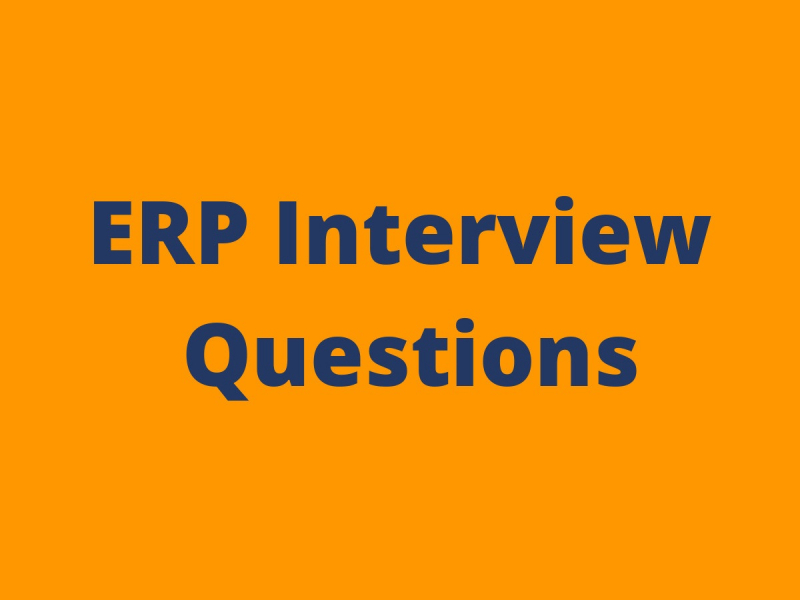Enterprise Resource Planning is an integration tool used in large companies that have too many departments. While preparing for ERP Interview Questions, a candidate must focus on technical proficiency. Most questions will test their coding and project management skills. Answers to the ERP interview questions should be filled with technical knowledge along with management. It is a multi-disciplinary platform that deals with departments like design, production, inventory, delivery, management, finance, logistics, and human resources. The job also requires good team cooperation for working on the drawbacks and miscues.
Candidates must ensure to be clear with all the fundamentals to answer ERP Interview Questions easily. Questions may be asked more about their previous work experiences and projects too. Candidates with good fundamental knowledge and also have trained in ERP are mostly preferred. Companies will look for analysts who are the most suitable for them, so candidates must know the essentials.
These common ERP Interview Questions will help them in their preparations.

